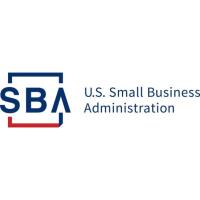SBA Administrator Guzman Announces Working Capital Pilot Now Accepting Applications at Participating SBA Lenders
August 06, 2024

Program Expands Small Businesses’ Access to Credit Lines That Create Jobs, Spur Sales and Growth
WASHINGTON – Today, Administrator Isabel Casillas Guzman, head of the U.S. Small Business Administration (SBA) and the voice in President Biden’s Cabinet for America’s more than 33 million small businesses, announced that SBA 7(a) lenders may now accept applications for the SBA’s newly-announced 7(a) Working Capital Pilot (WCP) Program.“Small businesses need affordable working capital to pursue revenue growth opportunities made available thanks to President Biden’s Investing in America agenda,” said SBA Administrator Guzman. “The SBA has expanded access to capital and increased small dollar lending over the past three and a half years – now, we are strengthening loan offerings through this new 7(a) Working Capital Pilot program to provide growth-oriented small businesses with competitively-priced lines of credit to fund orders and projects as they scale. The Biden-Harris Administration continues to level the playing field and ensure small businesses can compete, create jobs, and strengthen our nation’s economy.”
The SBA established the Working Capital Pilot Program to create a more flexible loan product to meet the market needs of our nation’s growth-oriented small businesses and give more options to SBA’s network of lenders when structuring a line of credit.
Using an innovative fee structure, the WCP provides flexible support for small businesses’ domestic and international capital needs and includes: the Transaction-Based WCP, which will allow small businesses to fund individual projects or orders, enabling access to working capital earlier in the sales cycle; and Asset-Based WCP loans, which will provide small businesses with a cost-effective way to access working capital against their assets, allowing small businesses to better manage their cash flow while also supporting supply chain resiliency.
FOR SMALL BUSINESSES
The SBA remains committed to maintaining a range of updated product offerings for small businesses to access working capital under the 7(a) Loan Program, including SBA Express loans, CAPLines, Export Loans and this new WCP. Small businesses can visit SBA’s Lender Match page to be matched with participating SBA Lenders that can provide funding with competitive rates and fees.
For small businesses participating in the global marketplace, the WCP is designed to support both domestic and international sales under one facility. For small businesses participating in the Home Energy Rebate Programs funded by the Inflation Reduction Act, the WCP provides a new solution to help companies increase capacity to serve more homeowners with their energy conversions.
FOR SBA LENDERS
Lenders currently approved to process 7(a) loans can begin processing 7(a) WCP loans on August 1, 2024. Due to the specialized nature of this type of lending, the SBA has created a new type of delegated authority for WCP called Preferred Lender Program (PLP)-WCP. Lenders with delegated Export Working Capital Program (EWCP) authority will be immediately provided with delegated authority to make 7(a) WCP loans. Lenders who do not maintain delegated EWCP authority may apply for delegated 7(a) WCP status with the requirements outlined in the Program Guide, which is available for download on SBA’s Training on Demand page.
More details on the program are available in the Program Guide and at 7(a) Working Capital Pilot program | U.S. Small Business Administration (sba.gov). The SBA encourages lenders to request support from their local Export Finance Managers for one-on-one counseling and assistance with WCP projects.
###
About the U.S. Small Business Administration
The U.S. Small Business Administration helps power the American dream of business ownership. As the only go-to resource and voice for small businesses backed by the strength of the federal government, the SBA empowers entrepreneurs and small business owners with the resources and support they need to start, grow, or expand their businesses, or recover from a declared disaster. It delivers services through an extensive network of SBA field offices and partnerships with public and private organizations. To learn more, visit www.sba.gov.
Contact:
Norma Lucero, Economic Development Specialist
norma.lucero@sba.gov, (907) 271-4841
